A killer took their loved ones, but he couldn't destroy their family
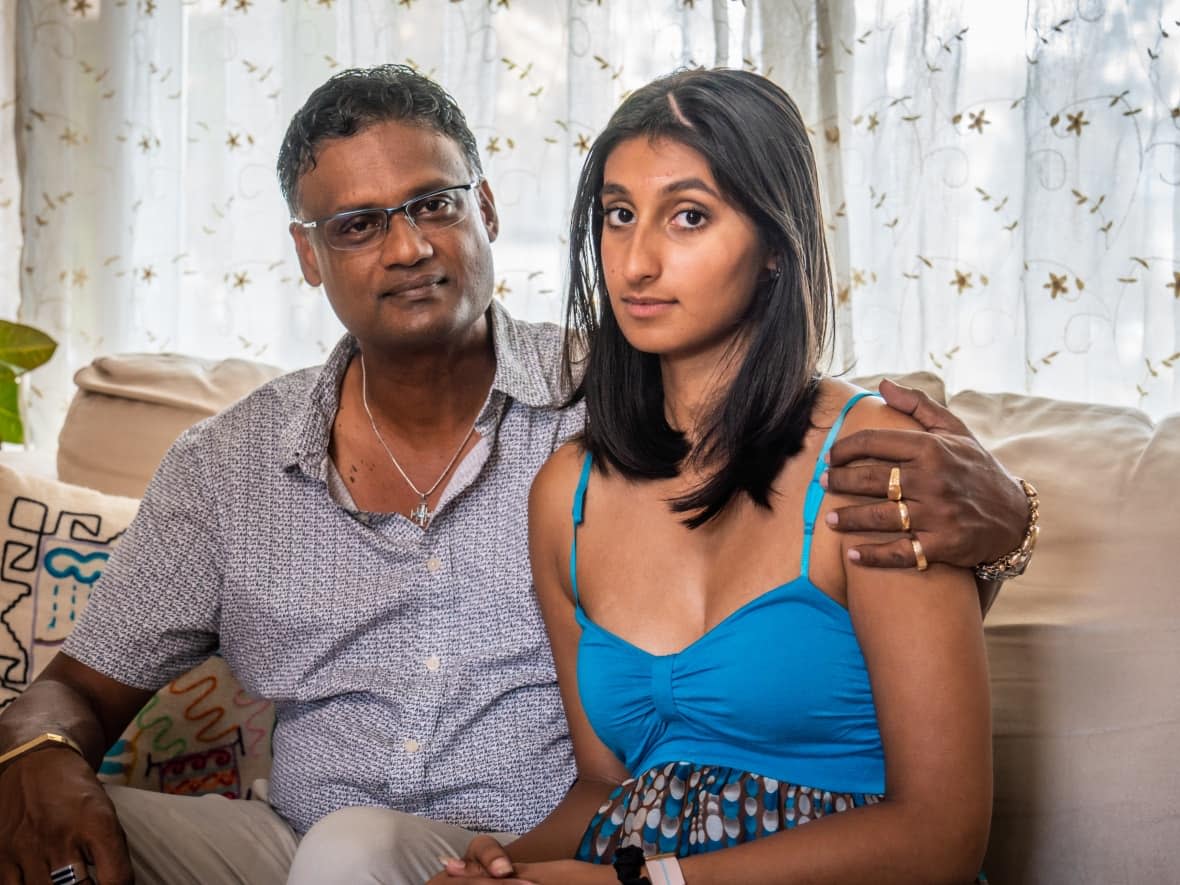
Catherine Ready still grapples with nightmares nearly two months after surviving a vicious knife attack that killed her mother and sister, a dark incident that has forever altered the fates of two families in a quiet Ottawa suburb.
The 19-year-old University of Ottawa student, who now bears scars across the back of her hand, scalp and forehead, said the June 27 attack has made her terrified of people and jumpy over "every little sound and every little thing."
"Half of me is here, half of me is constantly replaying what happened that night," said Ready, who is breaking her silence by speaking to CBC for the first time since surviving multiple stab wounds and a bullet shot by police.
Though there had been warning signs over the years, no one on Anoka Street — including the killer's own father — predicted a tragedy of this scale, which began in the living room of the Ready family's two-storey home before spilling out onto the street, and ended with police shooting both Ready and her attacker.
Her mother, Anne-Marie Ready, 50, and her sister Jasmine Ready, 15, both died that night, which she only learned hours later in hospital when a sergeant from the Ottawa Police Service arrived.
"When I was initially told, for a solid five minutes there was absolutely nothing, just me screaming and trying to be calmed down by nurses and other police officers," she said. "I just kept screaming out, 'I don't have a mother anymore at all! I don't have my sister anymore!'"
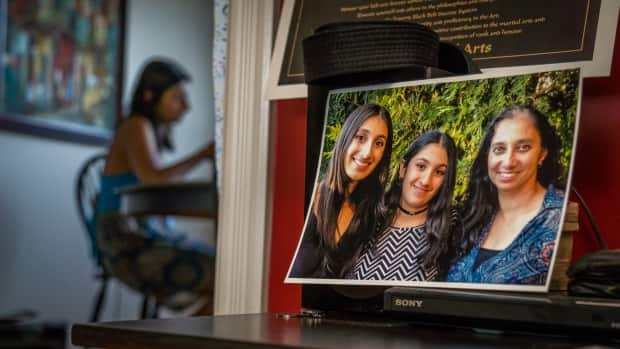
Attacker charged just days earlier
Joshua Graves, son of the Readys' next-door neighbour, also died that night. The 21-year-old was the intended target of the police bullets that also struck Catherine.
Details later emerged that he had been arrested, charged and then released on bail for sexually assaulting and stalking another 16-year-old girl just three days before his deadly rampage.
But as Catherine and her father Raphael recall the sequence of events that night, and make connections to previous troubling encounters with Graves — including how he once forced a kiss on Jasmine — something else is snapping into focus.

The attack was "systematically planned," said Raphael, 52, who was working in Barbados when it happened.
By his own family's admission, Graves had been battling his own demons. His years of harassment, intimidation and threats of self harm culminated in a double homicide that not only rocked the community of Alta Vista, but pointed to the larger issue of gender-based violence.
It's why Catherine and Raphael want to speak out. As survivors, the father and daughter want to regain control of the narrative of what happened to their family.
"You appreciate the fact that everyone tells you to be strong," said Raphael. "But it's a process you have to live."
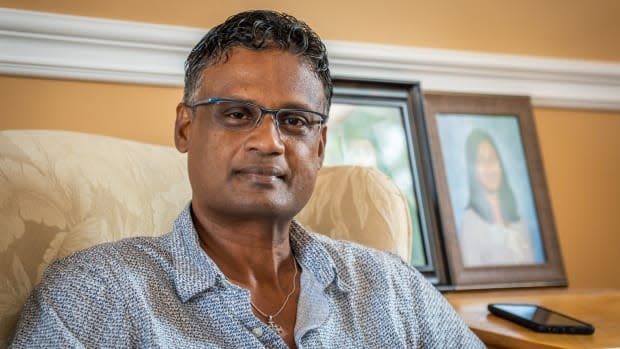
One last call
Every night for five years, Raphael placed a video call to his family from Barbados, where he worked in the construction industry and still owns the home that he and Anne-Marie had planned to spend their retirement in together.
He'd typically call around 10:30 p.m., after they'd eaten dinner and before bed. (The Readys tended to have dinner late in the evening.)
On the night of June 27, Anne-Marie called Raphael unexpectedly early, at around 9 p.m., before passing the screen over to Catherine and Jasmine. The conversation didn't last long, and Raphael told his daughters to call back at the usual time, after they'd eaten.
"That never happened," he said.
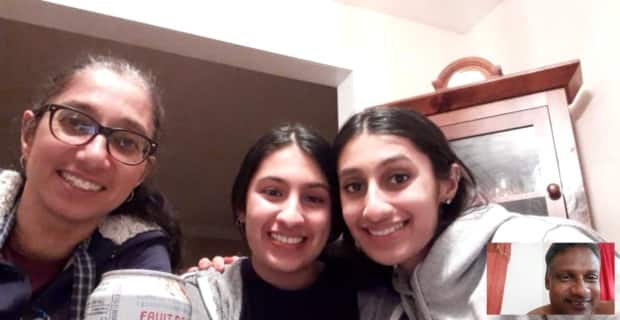
A knock at the door
After dinner that night, Catherine said she and her sister made their way upstairs to get ready for bed while their mother remained downstairs. All three changed into their pyjamas.
Catherine was in her room on a video call with her boyfriend when she heard a knock at the front door. Both sisters went to the top of the staircase overlooking the front entrance of the house, where they saw Graves was standing.
"He came in just asking my mother, 'Hey, I need to talk to you. I just need help,'" Catherine said. "Immediately, I knew something was wrong."
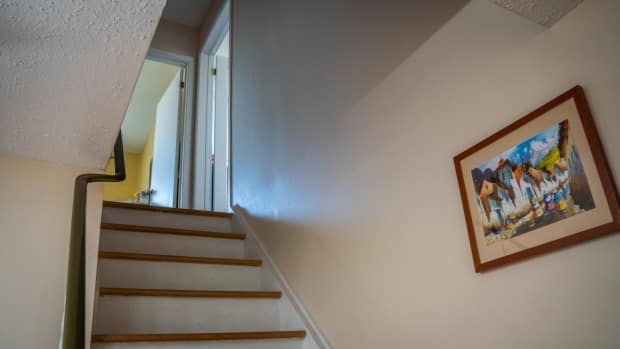
She said she instinctively grabbed Jasmine by her shirt and told her to go stay in the room, while she went downstairs to check on their mother.
"I didn't feel comfortable with her being alone with him," she said.
By the time she arrived downstairs, Catherine said she felt compelled to pull her mother aside, sensing a "weird gut feeling" about the visit from Graves.
'No one did anything'
But Anne-Marie was preoccupied with Graves, who by then was sitting on the couch in the living room, so Catherine slipped into an armchair facing him to keep an eye on things, or, in her words, to be "a discrete presence in the room."
"My mom had gotten him a glass of water and sat down on the couch and asked what was going on," she said. "He took one sip and put it down. And then he stabbed my mom in front of me."
Catherine said she watched Graves swiftly pull a knife out of his pocket with his right hand. After stabbing her mother, Catherine said he turned to attack her.
Hearing screams from the living room, Jasmine rushed downstairs. Momentarily distracted, Graves lunged in her direction.
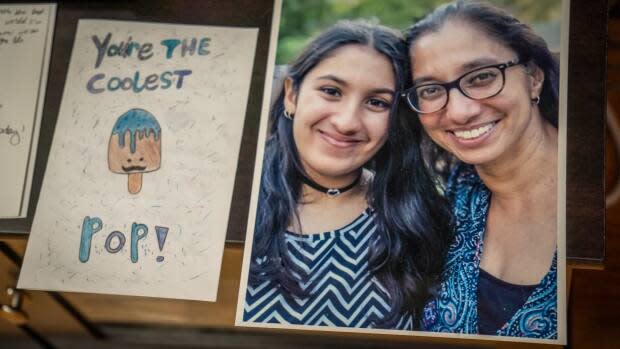
As the struggle ensued, Catherine said she tried to call for help from their home phone, including dialling 911.
"I felt like I wasn't getting an answer, so I threw the phone and I just started running," she said. She barged out of the house.
"I was on my hands and knees in the middle of the road, covered in my own blood," she recalled. "I was screaming at the neighbours to try to help, and no one did anything."
Begging for her life
Meanwhile, according to what investigators told Raphael, Anne-Marie mustered what little strength she had left to save her younger daughter. They, too, tried to escape the house, but never made it past the garage.
"She collapsed in front of the garage on top of Jasmine with her arms wrapped around her, trying to protect her body," Raphael said. "And he continued to stab them."
He said Graves "aimed for Jasmine's face only," stabbing her multiple times, including her eyes.
Graves then approached Catherine, who was lying in the street, and began stabbing her. She recalled begging and screaming for him to stop.
"And I just heard him say, 'I can't stop,'" Catherine said. "That's when I thought I was going to die."
But she didn't, because help finally arrived.
According to Ontario's police watchdog, the Special Investigations Unit, Ottawa police officers ordered Graves to drop his knife. When he refused, three officers fired their guns, killing the young man but striking Catherine, too.
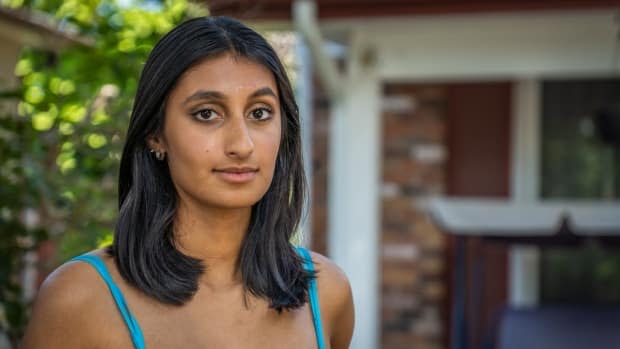
Mother was her role model
The next few days at the hospital were dark ones for Catherine, who recalled lying in her bed at the Civic campus of The Ottawa Hospital, crying and wishing she could talk to her mother one more time.
I lost my whole universe. I've never felt so alone in my life. - Catherine Ready
"I just needed to ask her, 'Mommy, what do I do? Can you hold me for a while, while I just try to figure this out?'" Catherine said, tears welling in her eyes.
The pain she felt from the stab and gunshot wounds, and a broken leg, felt insignificant compared to the immense grief that engulfed her.
Catherine said her mother was her role model, her greatest source of inspiration.
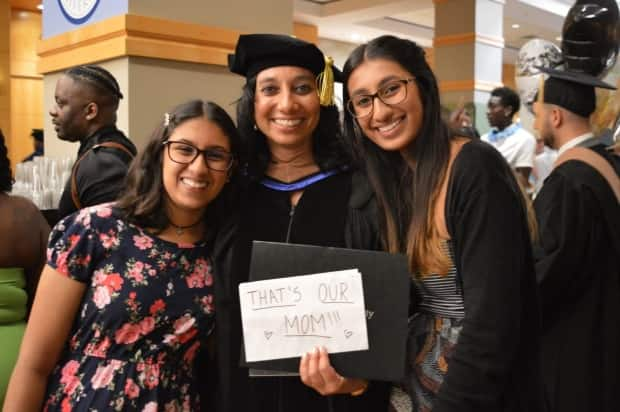
A trade commissioner with Global Affairs Canada, Anne-Marie spoke five languages and had served abroad in several high-profile postings, including the Canadian Embassy in Peru and the High Commission of Canada to Barbados.
Half French-Canadian and half Guyanese, she lived an adventurous and fulfilling life, acquiring three degrees, including a PhD in international business, all while working and raising her young children.
"On the days that I felt like I couldn't do it, I was overwhelmed, she would be there to sit with me and tell me that I could do anything that I wanted to do," Catherine reminisced about her mother.
On those difficult days, Catherine said her sister Jasmine's tight hugs, warmth and patience also comforted her.
"She was three years younger than me, but I think she was really the one who taught me how to love," she said. "She was my soulmate."

"I'll never have that again," Catherine said. "I lost my whole universe. I've never felt so alone in my life."
After 24 days in hospital, Catherine returned home to find everything as they had left it — the colourful decorations hanging on the walls from her and her mother's birthday celebrations earlier that month, a schedule on the refrigerator for Anne-Marie and Jasmine's weekly karate lessons, and a pan on the stove in the kitchen.
On that fateful night, Anne-Marie had used that pan to make Catherine's favourite side — zucchinis fried with olive oil, butter, salt and pepper, and finished with a dash of white wine.
The sight of the empty, unwashed pan was too much to bear.
Helpless from afar
Early in the morning after the attack, Raphael awoke in Barbados to his phone ringing. It was Anne-Marie's aunt.
"She was crying hysterically and then she candidly told me what happened," Raphael said. "I asked her for proof, asked her if she was sure, if the police spoke with her, if she was 100 per cent sure, like 10 times."
Still, the news was difficult to accept.
"I was pacing, I was grinding, I was hitting myself to make sure I wasn't dreaming," he said.
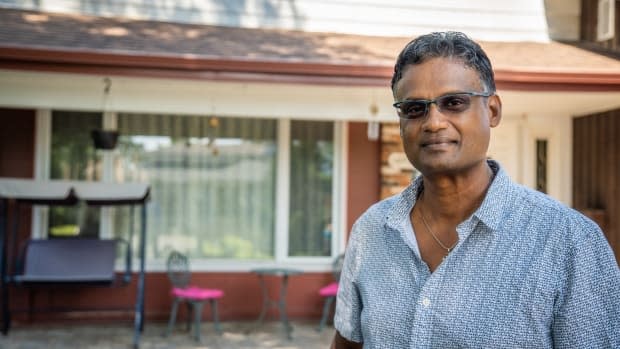
Raphael called some friends who helped him book a flight to Ottawa the next day. But the flight was cancelled because of a storm on the islands, grounding Raphael in Barbados for the next two days.
"It was devastating," he said. "I felt helpless."
He eventually managed to find a flight to New York, where his brother picked him up and drove him across the border.
Four days after his wife and daughter died, Raphael finally made it to Ottawa. He went straight to Catherine's bedside, his suitcase still in hand.

Over those four days, Raphael said he barely ate and only managed to get about four hours of sleep. But he felt a huge sense of relief when doctors told him Catherine was going to be OK.
Catherine remembered the moment her father walked into her hospital room.
"I felt like finally I can put some of this weight down," she said. "I don't have to carry the world on my shoulders anymore, and I'm able to share the bad days with someone."
Father and daughter hugged for the first time in two years — the pandemic had kept Raphael from travelling back and forth. They knew their lives had been changed forever.
"The plans that we have and the things that we're looking forward to, that will not eliminate what we have to go through for the rest of our lives. But it gives us a reason to live," said Raphael.
A history of harassment
Raphael said the family had had multiple unpleasant encounters with Joshua Graves.
About three years before the attack, he knocked on her family's door to introduce himself. He told them he had just moved into the neighbourhood with his father and stepmother, Catherine recalled.
He soon befriended Catherine's younger sister, joining Jasmine for walks and long chats on the front porch.
"We understand what it's like to move around a lot and leave your friends behind, so she felt bad for him," Catherine said.
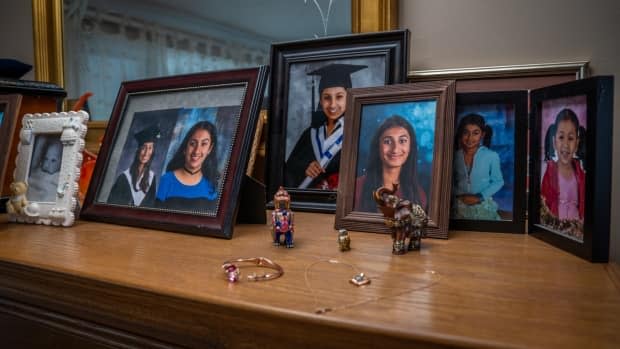
Though they were six years apart in age, Graves began texting Jasmine daily. But his behaviour soon veered into the "inappropriate," Catherine said, and her sister became "very uncomfortable."
According to Catherine, Graves confessed his romantic feelings to Jasmine when she was just 13. He was already an adult.
Jasmine told him she only wanted to be friends, but despite the rejection, he kissed her.
Catherine said she felt "absolutely mortified" over the lack of consent for what turned out to be her sister's first kiss. But Graves didn't stop there.
"He was forceful in trying to be romantic with her," said Catherine, who remembered helping her sister draft a text message to Graves to reject his advances.
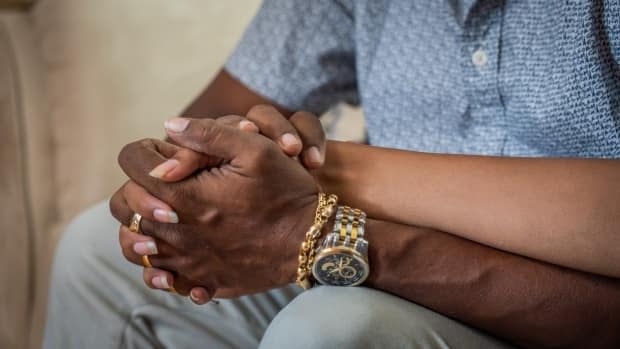
The age gap aside, her little sister was simply not interested in dating, Catherine said.
"Jasmine was very self-focused and very oriented to her goals and her talents."
She said Jasmine was a brilliant student who enjoyed school, where math was her favourite subject. She also kept a busy schedule, juggling karate and art lessons while also playing the piano and reading books in her spare time.
"She had other things to do, like playing with her friends," Catherine said.
Raphael said Jasmine was an unusually patient and empathetic teenager.
"I've never seen her get angry," he said. "She didn't like to cause problems. She didn't like to get people in trouble."
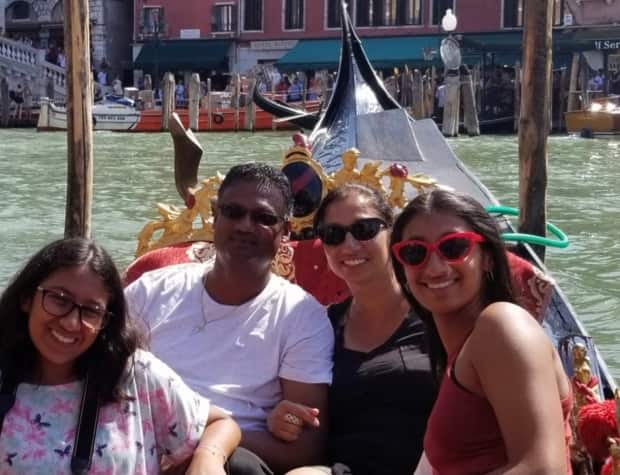
Inappropriate texts
Like many girls her age, Jasmine didn't always tell her parents about what was troubling her. But in April 2020, Graves threatened to kill himself in a text message to Jasmine.
She became worried and alerted her mother, who spoke to Graves directly.
"She told him, 'If ever you need help, if you need someone to talk to that's not your parents, not your friends, I'm here to help you,'" Catherine said.
But a couple months later, the messages only got worse. Raphael said the texts started to turn sexual.
"He started to inflict mental pain on her. He mentally tormented her," he said.
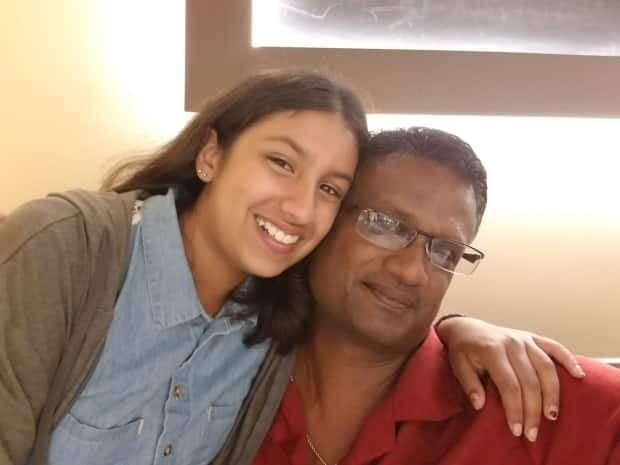
In June 2020, Graves told then 13-year-old Jasmine in a text message that "he would take her down to his basement and make love to her," Raphael said.
As soon as he found out, Raphael phoned Graves's father to alert him to his son's behaviour. Raphael said the neighbour promised that his son would soon move in with his mother, who lives in a different neighbourhood of Ottawa.
But the distance didn't deter Graves from pursuing Jasmine by text.
"She kept saying, 'I don't want this,'" Catherine recalled.
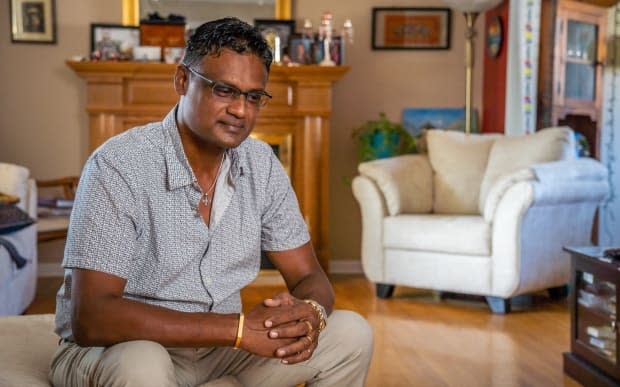
Eventually, at her father's urging, Jasmine blocked Graves's phone number. To Catherine's knowledge, her sister never heard from him after that.
Jasmine advanced to Grade 10 at École secondaire catholique Franco-Cité, where she was reintroduced to the highs and lows of normal teenage drama — until the night of the murders.
Reflecting on that evening, Catherine recalled what her sister had said to her before she went downstairs to check on their mother.
"The last thing Jasmine said to me was, 'I'm not scared of him anymore.'"
Attack was 'highly calculated'
Raphael, a former volunteer with the Ottawa Police Service, now believes Graves's attack was "highly calculated."
He learned from investigators that Graves, who was supposed to be under the supervision of his mother that night, had left his phone at home and took his mother's car without her knowledge.
Their kindness worked against them. It is basically what took their lives. - Raphael Ready
"He had a hammer and he had a stash of other knives in a bag in his car," Ready said.
Graves also parked three streets away on Heron Road, which may explain why even his own father didn't know he was in the vicinity.
Graves's father still didn't know it when, a short time later, he noticed police vehicles surrounding his neighbour's home, prompting him to tip off the media that something was unfolding outside.
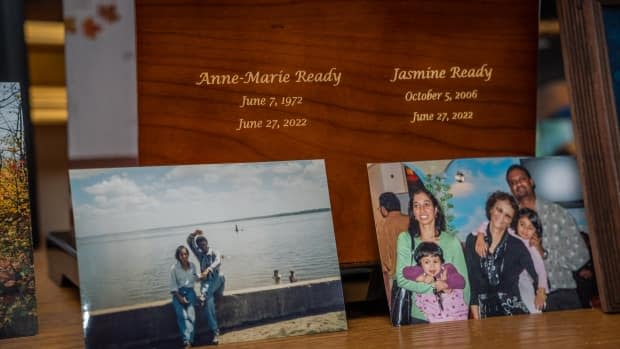
Raphael said investigators also informed him that Graves had blocked the back door of the Ready family home "so that they couldn't escape."
Somehow, the killer knew he'd be let in through the front door, despite the many times he had breached the trust of his former neighbours.
"Their kindness worked against them. It is basically what took their lives," Raphael said.
Targeting gender-based violence
"This was a person who did not know what no means," Raphael said of the man who killed his wife and daughter. "And the reality is, unless we really educate everyone and the next generation, this is going to continue happening."
Since coming to terms with the tragedy, he has committed himself to eradicating gender-based violence through advocacy.
"The men are the ones we need to educate," he said. "It's time for men to fight for women, and I'm prepared to do that."

Raphael said he plans to launch a campaign in October to educate youths in high schools and various communities about gender-based violence and femicide, and he's calling on others to join his cause.
Coincidentally, the double homicide on Anoka Street happened the very same day a high-profile coroner's inquest into the horrific murder of three women west of Ottawa in 2015 released 86 recommendations on how to prevent gender-based violence.
The eeriness of that concurrence wasn't lost on any of the dozens of women, lawyers, social workers or advocates who had testified during the previous three weeks.
Raphael said it's motivated him to support their efforts to reform Canada's criminal justice system. But first, he's moving back to Ottawa to be with his surviving daughter.

'Gifted a second chance at life'
Catherine now spends her days preparing for the fall semester at university. Finding her way back to normalcy remains a challenge, but she said she hopes her mother is watching from above.
"She would be so proud of me," she said.
For the 19-year-old psychology student, to live is to win — and not just for herself.
"My sister never graduated high school. My sister will never go to university. My sister will never be married or travel to all the countries she's never been to. She will never listen to music past the year 2022," said Catherine.
"Yet, I am here, gifted a second chance at life. And I want to do all the things she was never able to do."


